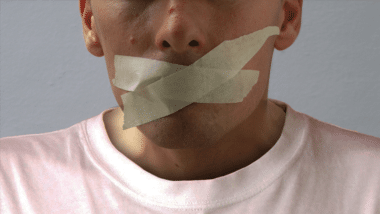The Scottish Courts and Tribunal Service (SCTS) has accused the Scottish Government of failing to communicate the details of its proposed hate crime Bill.
The SCTS complained it was not made aware of the changes it would need to make, or the costs involved to implement the legislation, before the Bill was introduced.
This week, Scotland’s Justice Secretary Humza Yousaf told the Justice Committee he intends to prosecute hate speech in the home.
‘In the dark’
The SCTS said in their letter that the Bill introduces “what appears to be an entirely new concept of the court having to record another level of information” that it “does not require, nor would it have any use for”.
Scottish Conservative justice spokesman Liam Kerr said the SCTS’s letter showed the Scottish Government’s “we-know-best attitude”, summed up by “having limited discussions with the very bodies who would have to deal with the legislation in the courts”.
He added that the Scottish Government “should have been keeping the courts service up to speed on this at every opportunity – instead they were left in the dark”.
A Scottish Government spokesperson said there had been “dialogue” with the SCTS throughout the Bill’s creation.
‘Concern well-founded’
Free speech campaigners have warned that the Bill leaves out crucial free speech safeguards which are present in hate crime legislation in other parts of the UK.
One such protection it omits is a “dwelling defence”, which protects individuals from being investigated by the police over private conversations in their homes.
During a Justice Committee meeting this week, Lord Bracadale, the judge whose recommendations led to the Bill, was asked by the Committee’s Convenor if Parliament should “be alert to some danger in that”.
Bracadale responded that he thought their concern was “well-founded”.
Scot Govt: ‘Hate speech in homes must be prosecuted’
Police Federation: Scots Govt has ‘grossly underestimated’ cost of hate crime Bill
SNP voters blast Scot Govt’s hate crime Bill
Law Society of Scotland: ‘Vague hate crime Bill could criminalise unpopular views’


